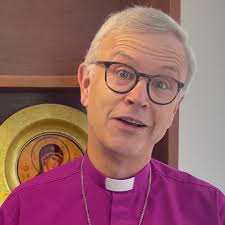The Australian community will be better the more we prevent sexual violence and child abuse. I welcome Professor Patrick Parkinson’s important contribution to this vital discussion in his recent article. It is helpful to review where we were and where we now are, and to that end I welcome the scrutiny of the wider community that his article affords.
It is also important to acknowledge that there has been significant progress in the Anglican Diocese of Newcastle in the decade since Professor Parkinson’s last direct engagement.
The conduct of some within the diocese, prior to the Royal Commission into Institutional Responses to Child Sexual Abuse, makes for shocking reading. There are far too many accounts of harm done to children and of the woefully inadequate response when wrongdoing was disclosed. Children were subjected to criminal offending. They were robbed of their dignity and shown no respect. It has affected their lives and those of their families ever since. The bishops, clergy, and laity of the diocese lament in word and action the sins of the past. We are working diligently to address them.
Writing from a conservative theological position, Parkinson suggests that a rejection of traditional Christian sexual ethics may have played a part in the events that unfolded. I want to provide a theological perspective based on compassion and consent, which I believe both progresses the conversation and assists the wider community’s engagement.
The work the Newcastle Diocese has done
The Royal Commission recognised that improvements in the Newcastle Diocese began nearly 20 years ago. It also named ongoing work that needed to be done. The diocese has a strict policy on reporting crime to the police. It has a well-resourced safeguarding and professional standards unit. It regularly promotes safeguarding.
Patrick Parkinson and others can point out misconduct precisely because the system is working. The diocese regularly acts on matters when it can deliberate in a way that meets the procedural fairness tests of serious matters under administrative law. These processes are held in public with the decisions published on the diocesan website.
With the people of the diocese, Parkinson is rightly focused on the prevention of abuse and harm. I agree with him that “a clear moral code on sexual ethics in terms of private behaviour plays a role in preventing the sexual abuse of minors”. I don’t think him prudish for holding to his conviction that “sex is only morally acceptable within the bounds of marriage between adults”. However, I believe we need to take a different approach to ensure the safety and wellbeing of children, vulnerable people, and the population at large.
Engaging in wider ethical conversations about sex
The diocesan workforce exceeds 4,000 people, more than half of whom are volunteers. Around half of the workforce are committed Christians. That number is much lower among our paid staff. We work in areas where it is illegal to discriminate on the basis of sexuality for our staff or the people we support. We have been eager to find approaches to human sexuality which enable us to speak to the people in our diocese more broadly.
There are serious debates about how Christians should behave sexually. Most churches teach that sex should be confined to marriage and define marriage as limited to heterosexual relationships. The Catholic Church teaches that the use of contraception or sterilisation denies the “true nature of marriage” and is an effort to human dignity. Not all Christians agree with these statements and certainly not all Christians abide by them.
The Diocese of Newcastle’s ethical framework is expressed in our code of conduct for clergy and church workers and in the education that accompanies it. We hold and teach that “Sexuality is a gift from God and is integral to human nature”. We say that there is “no place for casualisation of intimacy or predatory behaviour in which your conduct may be seen as exploiting or endeavouring to exploit another person for your gratification”. Clergy and church workers are held to a high standard. We say that “it is appropriate for clergy and church workers to value the gift of sexuality, taking responsibility for their sexual conduct by maintaining chastity in singleness and faithfulness in marriage”; they are, in turn, “to set an example of integrity in relationships and faithfulness in marriage and not engage in disgraceful conduct of a sexual nature”.
Our engagement with the broader community through our workforce and the people we support reminds us that, in the society surrounding the church, many people have enjoyed healthy, adult and consensual sexual relationships without being married and without causing harm to anyone. But we also see, through our work, people who have been exposed to violence in their relationships. Child abuse and sexual abuse are forms of violence. There is nothing about marriage that prevents violence. Another theology is needed.
Consent and compassion as expressions of love
God, who reveals himself in Jesus, points to love. The New Testament witness to Jesus emphasises the humility of love in which the needs of the loved ones have primacy. Jesus does not enforce his will on humanity but serves them with the entirety of his being.
Consent, far from being insufficient as the basis for a consistent sexual ethics as Parkinson suggests, is an expression of being a loving person. It ensures that a person is not forced into anything. Consent is something that must be sought. Its presence must be watched for continually. Consent sounds like: “I will only engage with you in the way you permit. I will respect your autonomy and assure you of your dignity. I will act with restraint. I will not impose my will upon you. I will not harm you.”
In relation to sexual expression, the law makes clear that some people, because of their age and vulnerability, cannot give consent. When consent can be given and sustained, then a person can give and receive pleasure, and playfulness that is wanted and is respectful. There can be choices about pregnancy. Seeking and giving sustained consent is a respectful framework that can be internalised and lived by. It is a way of preventing violence and harm. It is a way of expressing humility and love.
This approach is affirmed by the many Australians who are not involved in religious communities. Generally, they feel much more comfortable speaking about sex. This has been enabled because of various public policy instruments that enable people to freely and comfortably engage in trusting intimacy because of:
- publicly funded birth control;
- the removal of the stigma surrounding condom purchase and use;
- explicit teaching about safer sex;
- no-fault divorce evidenced by 12 months of separation, meaning people are not compelled to remain in a failed relationship;
- effective measures that promote gender equity and proscribe harassment in the workforce and at law;
- rules that proscribe sexual relationships between professionals and their clients;
- public campaigns around preventing violence and promoting consent.
Religious communities are often bound by sexual shame, as Karen McClintock has argued. She writes that sexual shame is created within congregations when people are unable to talk openly about sexuality and seek to repress it. She suggests that sexual shame is corrosive.
One of the greatest protections against abuse of power through sex is transparency about healthy sex. Churches and other religious communities are distinctly uncomfortable if people who are living in partnership, are unmarried, post-married, or queer speak openly about being sexually active. The same communities can also be uncomfortable when married people talk about birth control, sex difficulties, or the effect of aging or disease on their sexual activity.
Another expression of God’s love revealed in Jesus is compassion. We see Jesus’s compassion particularly in John’s Gospel, which presents an emancipated view of women as he addresses the Graeco-Roman and Jewish world of his listeners. This is exemplified in Mary Magdalene serving as the Apostle to the Apostles, and as the first witness to the fullness of the resurrection.
In John’s Gospel, we are given two significant stories of Jesus’s encounter with women’s sexual expression. In one story we hear of a Samaritan woman who has had many husbands and is currently living with someone who is not her husband (John 4:1-42). In another story the woman is dragged from an intimate encounter and, to use a modern term, is “slut shamed” (John 8:3-11). In both stories, Jesus engages with remarkable compassion. In one account the woman is affirmed for a ministry role with no words of advice or condemnation about her life. In the other account, Jesus first confronts the men shaping the prevailing culture about their own wickedness. He then speaks with kindness to the woman about living without sin. He protects the woman from the crowd that wishes to kill her.
I am firmly convinced that Jesus wants us to engage compassionately with people in the circumstances of their lives. He wants us to reflect with them both on the pragmatics and ideals that form them. People will be primarily shaped by the value system of their family of origin and other influences. The same is true for clergy and church workers. Like Jesus, we must begin where people are and engage with them with kindness. Through gentleness and care, people can be open to God and inspired to reflect more fully the divine image — to be their best selves and flourish.
Monogamous life-long marriages, when they are marked by equality, respect and safety, offer an outstanding space for mutual growth and nurturing that is shared between two people, any children they may have, as well as the kinship network. Marriage provides a way of life which offers support through good and bad times. There is much to commend monogamous life-long marriage, when it is fashioned as a safe, respectful, mutually growing relationship. Yet, the rates of domestic and family abuse in the community and in the church are alarming, with much of the pain inflicted on women and children. I suggest that compassion and consent have undergirding theologies which must be brought into the foreground.
The crimes and misconduct which Parkinson recounts all reflect a failure to treat another person with dignity and respect. Consent was never possible, and they are devoid of compassion. The perpetrators have been rightly condemned.
Robust responses are essential
Research into violent and sex offenders paints a frightening picture. One-in-six men sexualise children. 40 per cent of women have experienced abuse of some sort by the age of 15. Some perpetrators only act when the opportunity arises; some act when they are under stress themselves; but some create the opportunity to offend over an extended period. Primary prevention will never be sufficient by itself. Protective systems, vigilance and robust response will remain essential.
Many people in the Newcastle Diocese see themselves as targets of the criminality and misconduct that occurred. They recognise that for over 25 years they had been groomed. They saw their leadership as failing its basic responsibilities. Recovery takes time and endurance when it addresses the insidious tendrils of a sick culture. Both the Royal Commission and Anne Manne’s important book Crimes of the Cross help us see some of the heroes inside and outside the diocese who have led and cemented change.
Patrick Parkinson ends his article by focusing on a priest who was removed from ministry because he defended a known sexual offender who had assaulted a member of the priest’s congregation. These were violent actions. Neither showed compassion or humility. Neither placed the dignity and respect of the young man at the centre of their thinking. If they had, their actions would have been different. It is also important to know that this wrongdoing was identified within the church, reported to the police, and acted upon swiftly.
The Anglican Diocese of Newcastle remains strongly committed to redressing the crimes of the past, safeguarding the vulnerable in the present and future, rigorous screening and training of its workers, and promoting and ethical approach in which people flourish informed and inspired by the life and compassion of Jesus.
Rev. Dr Peter Stuart has been the Anglican Bishop of Newcastle since 2018. He was previously the Assistant Bishop of the Diocese of Newcastle.



